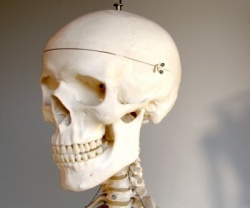Should specialist medical training be more flexible?
Specialist medical training programmes should retain some flexibility to help trainee doctors make the right career choices, according to a study published on bmj.com. Some UK medical graduates choose a specialty as soon as they qualify and others after a few years of postgraduate work. But changes to postgraduate medical training mean that junior doctors will generally have to make choices sooner than in the past.

This concern was first highlighted by the Tooke report in 2008, which suggested that medical education and Modernising Medical Careers policy in the UK encourages foundation trainees to make career choices when many are not ready to make such commitments.
Researchers at the University of Oxford, set out to compare doctors’ early career choices with their eventual career destinations.
Using questionnaire data from five cohorts of doctors from UK medical schools, who graduated between 1974 and 1996, they compared the extent to which choices of specialties at one, three, and five years after graduation corresponded to career destinations 10 years after graduation.
They found that, 10 years after graduating, almost half of doctors were working in a specialty different from the one chosen in their first year after graduation and about a quarter were working in a specialty different from their year three choice.
This trend stayed reasonably constant across graduation cohorts despite the changes in training programmes over time.
Differences between specialties were considerable - for example, 90% of practising surgeons but only 50% of general practitioners had chosen their specialty in year one.
The research shows that many doctors who want to be general practitioners from the outset achieve their ambition, but also that many doctors who initially aspire to other careers eventually work in general practice, explain the authors. It also suggests that eventual success in surgery is only likely if surgery was always the intended specialty, but also that many with that early aspiration do not achieve it.
Some respondents commented about an increasing lack of flexibility, as they saw it, in applying for specialty training, while some expressed concerns about having only one lifetime opportunity to succeed in getting on to a training programme for their chosen specialty.
The authors conclude that a two point entry to specialty training programmes would alleviate this problem by allowing those who have made early, definite choices to progress quickly into their chosen specialty, while recognising the need for flexibility for those who choose later.
In an accompanying editorial, Jeremy Brown, a senior lecturer at Edge Hill University in Lancashire acknowledges that the career advice service provided by medical schools and deaneries has improved greatly, but warns that “specialty programmes need to identify ways of supporting those trainees who need time and experience in the postgraduate setting to make a firm commitment that will match their eventual career destination.”
He concludes: “These findings may strengthen the argument that the existing two year foundation programme followed by two or three years of core specialist training may provide the necessary flexibility to match and underpin the natural variation in career aspirations for many postgraduate doctors.”
picture source: pixelio.de/RainerSturm
07.07.2010





